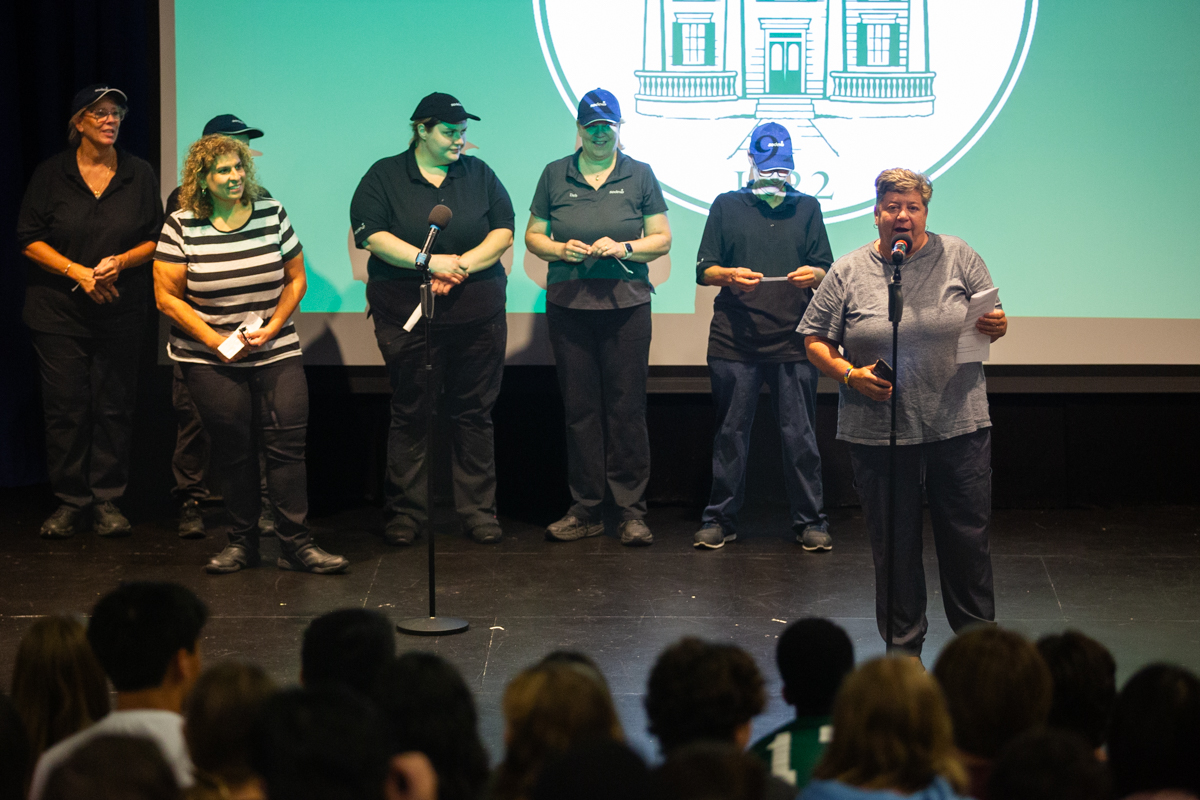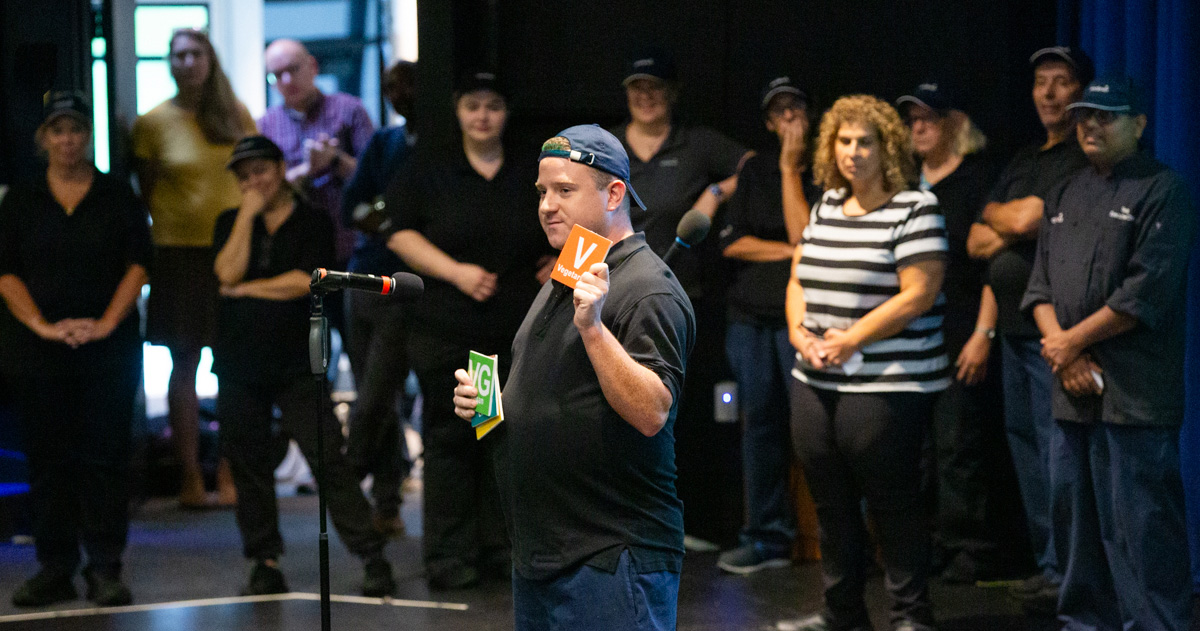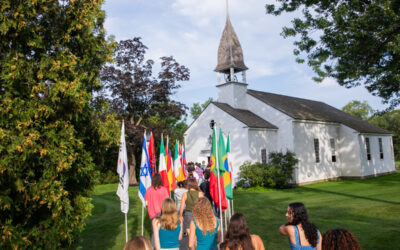
On September 13, Concord Academy students assembled in the Performing Arts Center to meet the people responsible for the abundance of healthy, delicious food its dining hall serves. Staff members each shared helpful tips and information regarding their food stations and reviewed the bright and clear labeling for the organic, vegan, vegetarian, and gluten-free options available each day.
CA hopes to bring familiar foods from all cultures and cuisines to campus. To that end, families are invited to send favorite recipes with Shawna Penders—they may make it onto an upcoming menu!
Supporting CA’s Commitments to Community Health and Sustainability

CA contracts with Sodexo, whose dining services leadership collaborates with the school’s Environmental Sustainability Task Force and Student Food Committees to set environmentally responsible goals for CA’s dining options and support the school’s progress toward sustainability targets.
Additionally, the dining hall provides healthy options for the CA community, including individuals with special dietary needs. This year, here’s what that looks like in the Stu-Fac:
- Plant-forward options: Weekly menus offer a variety of vegan and vegetarian options at lunch and dinner, which are easily identified by icons. Healthier choices are also indicated by a “mindful” icon; these options are limited in calories, with less than 30% of calories from fat, including less than 10% from saturated fat, and are restricted in sodium and cholesterol.
- My Zone: The dining hall includes MyZone, a special gluten-free, peanut- and tree-nut-free area reserved for individuals with a gluten allergy or intolerance, allergies, and other special dietary needs. It includes a mini-fridge filled with condiments, packaged deserts, cooked pasta, and a variety of other gluten-free options; a mini-pantry stocked with dry cereal and breads, and a designated microwave.
- Local food: CA’s dining hall supports local food systems by sourcing milk from Garelick Farms, which is free from artificial growth hormones and tested for antibiotics; delicious fresh bread from Nashoba Brook Bakery in West Concord; and fresh vegetables from Costa Produce, which buys from individual farms and local co-ops throughout New England.
- Responsible meat: The chicken served at CA is halal certified. And, when available, pasture-raised pork served at the dining hall comes from Clark Farms in Carlisle, Mass.
- Composting: CA collects all leftover food scraps in the dining hall for composting through Black Earth Compost. The dining hall generates around a ton of compostable waste per month, which is diverted from a landfill and brought to a local farm to break down into rich, reusable compost.





